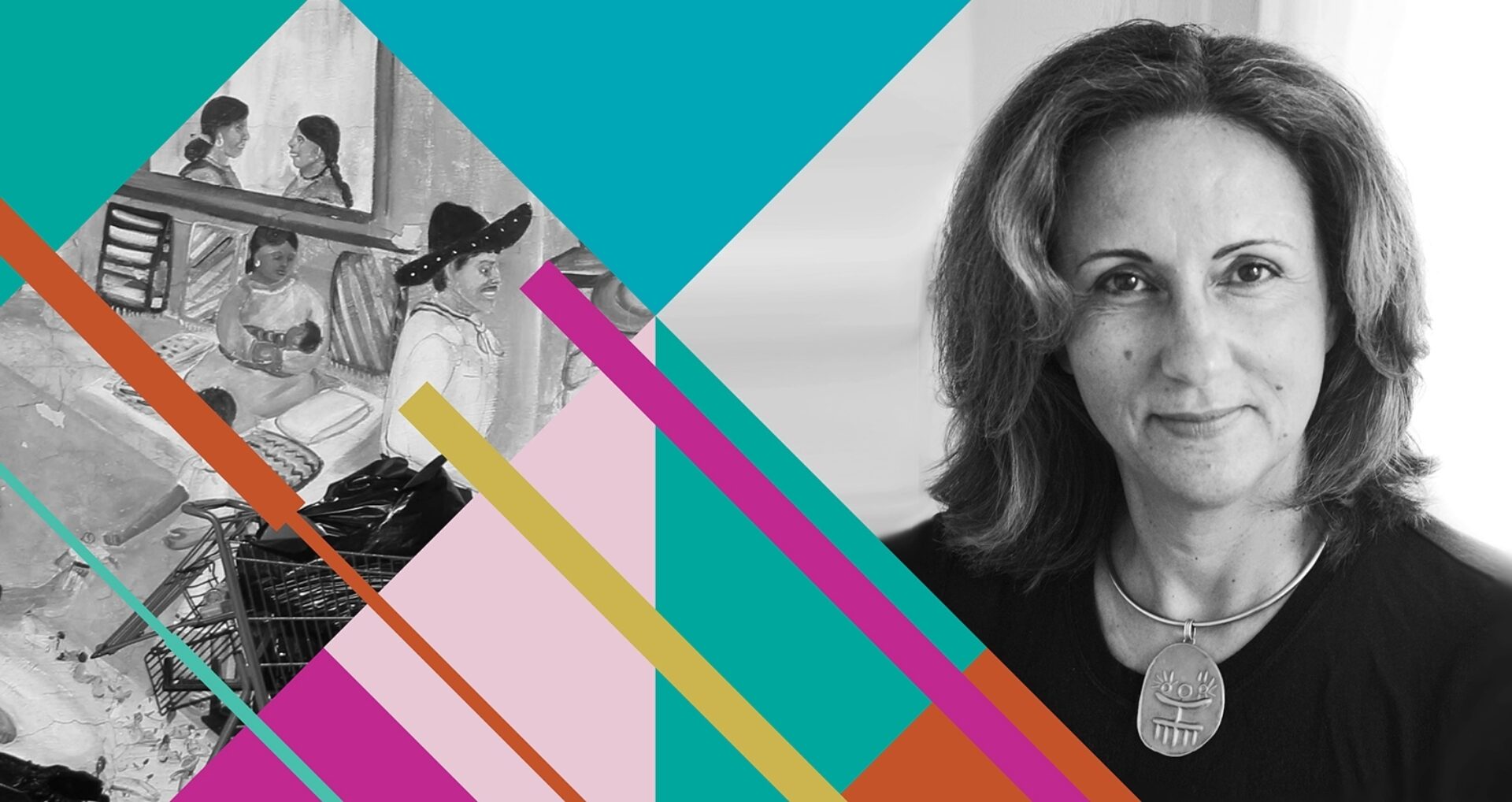IIDA is proud to announce that Tasoulla Hadjiyanni, Ph.D, Northrop Professor of interior design at the University of Minnesota has been named the annual recipient of the IIDA Foundation’s Educator Diversity Award. Dr. Hadjiyanni has spent over 20 years advancing racial and ethnic diversity in the interior design industry and encouraging interior designers to become partners in eliminating racial disparities in health, income, and education through her vision for Culturally Enriched Communities.
Her award-winning courses and pedagogies broaden opportunities for interior design students to learn about diverse experiences of space, question how perceptions and approaches can contribute to marginalization. Her research and published work incorporates the experiences of immigrant and minority groups to inform how interior design can be used to eliminate disparities and better support the different ways that spaces impact the health and well-being of the people within.
Gilbert Broco, IIDA, 2021 IIDA Foundation Trustee, and judge for the award says, “Dr. Hadjiyanni's accomplishments are very inspiring. Her work in Studio V's course with immigrants and minority groups, the Design & Globalization course focusing on issues of social justice, and her incredible reference library of books, papers and publications under her name, represent everything we are looking for in our leaders, mentors and teachers.”
Dr Hadjiyanni established two websites aimed at empowering designers with resources and information to reimagine their roles in eradicating systems of exclusion and eliminating disparities. Her Culturally Enriched Communities (cec-design.com) project explores how the built environment can be used to create healthy and connected communities in which everyone can thrive. Highlighting racial differences in health, income, and education as well as including COVID-19 information, and Landscapes of Hope, a project documenting the stories of over 200 buildings impacted by the protests following the murder of George Floyd in Minneapolis. Design Against Trafficking, (designagainsttrafficking.com) which pioneers the industry’s role in the fight against modern day slavery offering design solutions that provide safety for victims of human trafficking.

Above: Image from Landscapes of Hope documenting buildings impacted by the protests following the murder of George Floyd in Minneapolis.
“Advancement of racial and ethnic diversity in the interior design industry is grounded by identifying and addressing systems of exclusion,” Dr. Hadjiyanni explains, noting that “teaching broadens opportunities for interior design students to learn about diverse experiences of space, question their perceptions and approaches, and transform into activists for social justice.”
As an educator, her students are directly impacted by her ability to welcome them into the discourse while honoring their backgrounds and cultures and pushing them out of their comfort zones. Her curriculum encourages them to speak with ethnic and minority community members so that they may better design for enhancement of well-being. Betsy Vohs, Associate AIA, LEED AP Founder and CEO states that “This is often the first time students are faced with a design challenge that considers cultural needs, rituals and norms outside of mainstream American ideals. This work is transformational for students.”
“In an industry rooted in understanding peoples’ relationship to each other and their environment, it is vital that students gain the tools to handle difficult conversations and engage with the community in respectful ways,” says student Leif Kutschera. “I’m able to identify the impacts of design on systemic oppression as well as the converse: how design can be healing and create a more just and inclusive world.”
Her students also recognize the ways that she includes their diverse backgrounds, and encourage them to consider their own culture. Student Kotono Watanabe, Interior Designer at Alchemy Architects IDES, UMN Class of 2020 credits her approach with international students as a crucial part of their education. “As Program Director, she held dialogues with international students like myself to find better ways to support us. We discussed how we can be more transparent about our cultural identity and foster a stronger sense of belonging within the interior design program—she helped me to see myself as a designer of color as an asset to the design community.“
Traci Lesneski, CEO and Principal, MSR Design attests to the ways that her research is presented in an accessible way to designers, “Her latest book, The Right to Home, opens a window into unexpected uses and unexpected consequences of design decisions and how these can impact peoples’ ability to live healthy lives.” Lesneski goes on to note that Tasoulla’s research “dedicated to the study of how communities and their built environments can limit or support the specific cultural needs of different communities, is essential information for designers of all types.“
The Right to Home is the first of its kind to explore how interiors can support or suppress meaning-making processes, for example how kitchen layouts can restrict cooking, the size of social areas limits gatherings, walls construct connections to spirits, windows nourish the soul, and dining tables instill aspirations.

“Another testimony to Tasoulla’s contributions to advancing racial diversity is her current initiative to attract and retain Indigenous students to the design profession.” notes Lesneski, “Tasoulla plans to devote part of the IIDA Educator Diversity Award to those efforts.”
Read more about the award and Tasoulla Hadjiyanni, Ph.D. here.
